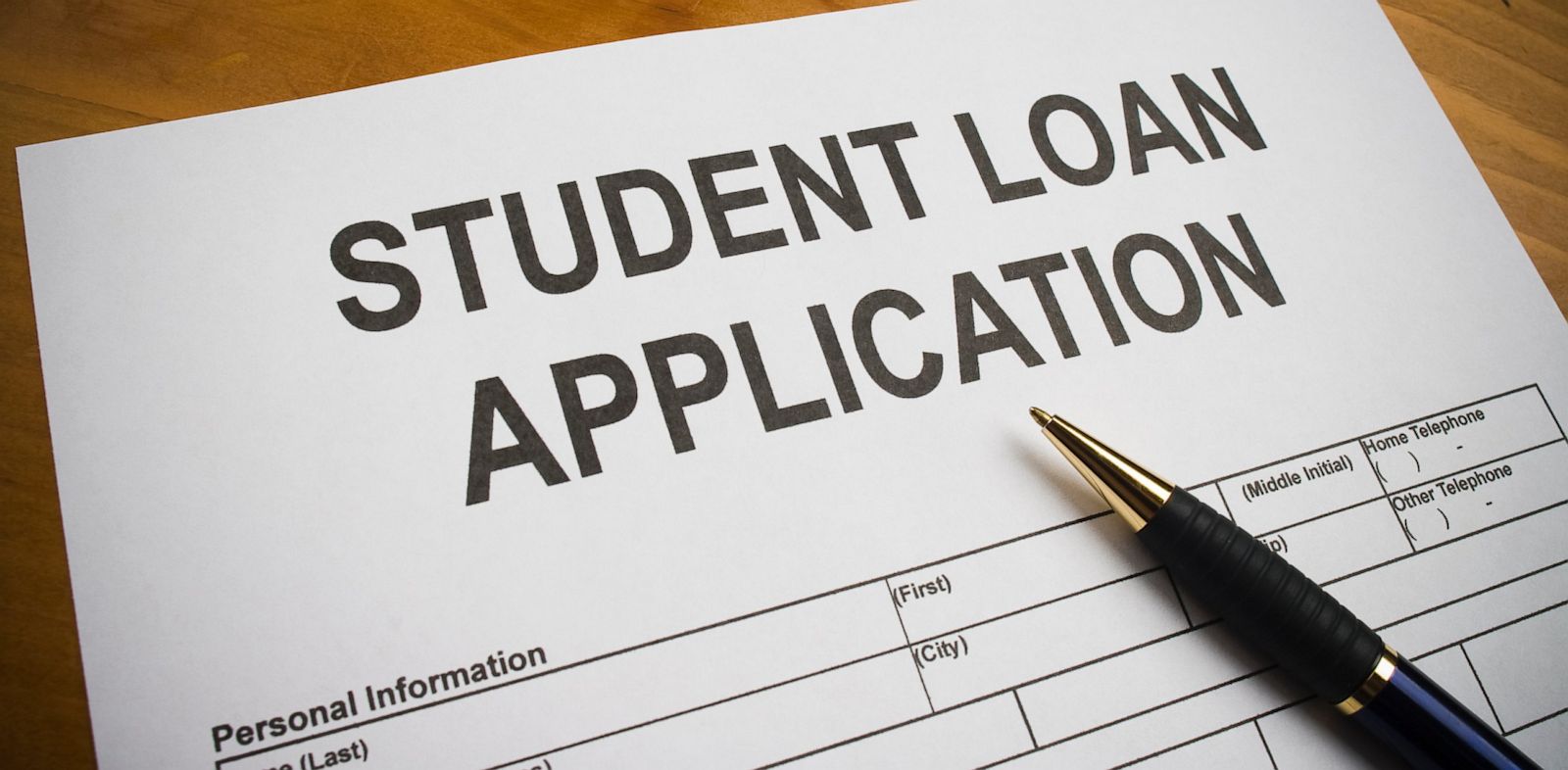Federal Government Loans For Small Business Currently(2023)
List Of Available Federal Government Loans For Small Business Currently (2023). In this article, you will find a list of current federal government loans for 2023, as well as information on how to apply.

The Nigerian government has several different initiatives in place, that assist both small and large businesses with funds — although focus is placed on smaller businesses.
The government concentrates on small and medium-sized enterprises (SMEs) for a number of reasons. One of the main reasons being, that the SME sector is a key ingredient for a healthy market economy. SMEs make up the vast majority of the total number of businesses in Nigeria. Accordingly, they make big contributions to value added and employment.
Please keep in mind that some loans are interest-free, while others have low interest rates. The government loans listed here have a no-fee application form process.
See Also: How To Check NIRSAL Loan Approval With BVN Online
List of Federal Government Loans 2023
Below is a list of Federal Loans programs 2023 for all Nigerian Citizens.
Central Bank of Nigeria (CBN) NIRSAL COVID-19 Loan
NIRSAL Covid-19 loan opportunity through the Central Bank of Nigeria (CBN) aimed at assisting Nigerian businesses and households in recovering from the economic problems caused by the COVID-19 pandemic. However, to apply for the NIRSAL Covid-19 loan, visit https://nmfb.com.ng/covid-19-support.
NYSC CBN Loan
This loan has been around for quite some time. It’s a loan program for ex-corps and corps members to help them start a business, so they don’t have to rely on white-collar jobs after their national youth service. It’s easy to apply. Go to the application form portal to register https://www.yiedp-hbng.com.
AGSMEIS loan from CBN
The Central Bank of Nigeria’s Agric, Small, and Medium Enterprise Loan aim to assist agricultural-related enterprises in Nigeria. For more information on how to apply for this loan visit https://agsmeisapp.nmfb.com.ng/.
GEEP Loan from Npower
Geep is an interest-free loan for N-power batch A and B beneficiaries to help them launch a business and avoid returning to the streets. You can apply online at www.npower.gov.ng/.
Federal Mortgage Bank of Nigeria’s NHF loan
The National Housing Fund (NHF) loan is a federal government effort designed to make affordable housing more accessible to Nigerians. For more information on how to apply for this loan, click here.
TraderMoni Loan
The Federal government’s Government Enterprise and Empowerment Programme (GEEP) designed this no-interest loan exclusively for Nigerian tiny traders and entrepreneurs.
FarmerMoni is a loan program for farmers.
This is a loan by the federal government to help and encourage small farmers. The Government Enterprise and Empowerment Programme is funding this loan initiative (GEEP). You can apply at https://www.boi.ng/, which is the website of the Bank of Industry.
MarketMoni
MarketMoni loan is also from GEEP. It is a federal government loan program designed to provide financial assistance to small business owners. This loan looks a lot like the TraderMoni loan. You can apply for this loan at https://www.boi.ng/apply.
The FGN helps fund businesses through a variety of government-backed organizations or agencies including:
- Bank of Agriculture (BOA)
- Bank of Industry (BOI)
- Central Bank of Nigeria (CBN)
- Development Bank of Nigeria (DBN)
- Nigerian Export-Import Bank (NEXIM)
- Small and Medium Enterprises Development Agency of Nigeria (SMEDAN)
Based on the agency and loan product on offer, FGN loans come with a variety of different interest rates and repayment plans.
See Also: Migo Loan: How To Get Loan From Kwikmoney (Instant Loan)
Funding And Types of Loans Available Through The Federal Government of Nigeria
Bank of Agriculture (BOA)
The Bank of Agriculture is a government-sponsored bank. It gives credit and other forms of funding — to farmers and related agribusinesses.
Some of the BOA products and services include:
- Agro-Processing Facility
- Direct Credit Product
- Equipment Leasing Product (ELP)
- Export Finance Facility
- Grow and Earn More (GEM)
- Haulage Credit Facility
- Hides and Skin Revival Credit Facility
- Input Procurement Credit Facility
- Inventory Credit Facility
- Large Credit Product
- Ranching Development Credit Facility
- Sugar Revival Credit Facility
- Youth Agricultural Revolution in Nigeria (YARN)
Bank of Industry (BOI)
The Bank of Industry aims to provide long term financing — to the industrial sector of the Nigerian economy. Focus sectors include agriculture, agro-processing, information communication technology, oil and gas, solid minerals and the creative industry.
Some of the BOI products and services include:
- ASM Fund
- Bottom of Pyramid
- Fashion and Beauty Product
- Light Manufacturing
- Food and Agro Commodity Processing
- Graduate Entrepreneurship Fund
- Nollyfund
- On-Lending to Commercial Banks
- Solar Energy
- Youth Entrepreneurship Support (Yes) Program
- Youth Ignite Program
- BOI/CBN Intervention Fund
- Cassava Bread Fund
- Cement Fund
- Cottage Fund
- FGN Special Intervention Fund for MSME (NEDEP)
- NADDC Fund
- National Program on Food Security (NPFS)
- Rice and Cassava Intervention Fund
- Sugar Development Council Fund
- BOI/State Matching Funds
- BOI/Dangote Foundation Matching Funds
Central Bank of Nigeria (CBN)
The Central Bank of Nigeria, through a number of development finance operations, provides a variety of loans to businesses across the country.
Some of the CBN products and services include:
- Anchor Borrower’s Programme (ABP)
- Commercial Agriculture Credit Scheme (CACS)
- Creative Industry Financing Initiative
- Credit Support Scheme For The Healthcare Sector
- Maize Aggregation Scheme (MAS)
- Micro, Small, Medium Enterprises Development Fund (MSMEDF)
- Non-Oil Export Stimulation Facility (NESF)
- Paddy Aggregation Scheme (PAS)
- Real Sector Support Facility (RSSF)
Development Bank of Nigeria (DBN)
The Development Bank of Nigeria is a wholesale financial institution. The DBN has the goal of expanding the access to credit for micro, small and medium-sized enterprises (MSMEs).
Some of the DBN products and services include:
- Wholesale lending
- Partial credit risk guarantees
- Capacity building — the DBN Entrepreneurship Training Program
See Also: USSD Code for Loans in Nigeria | Best Loan With Low Interest Rate
Nigerian Export-Import Bank (NEXIM)
The Nigerian Export-Import Bank is mandated to help facilitate the export of goods and services — from Nigeria. Businesses involved in export related activities, are eligible for a NEXIM loan.
Some of the NEXIM products and services include:
- Direct Lending Facility
- Foreign Input Facility
- Local Input Facility
- Nigerian Creative Arts and Entertainment Industry Loans
- Small and Medium Enterprise Export Facility (SMEEF)
- Stocking Facility (SF)
- Women and Youth Export Facility (WAYEF)
- Export Development Facility (EDF)
- Nigeria-Africa Trade and Investment Promotion Program (NATIPP)
- Rediscounting and Refinancing Facility (RRF)
- Export Credit Guarantee Facility
- Export Credit Insurance Facility
Small and Medium Enterprises Development Agency of Nigeria (SMEDAN)
SMEDAN is tasked with stimulating, monitoring and coordinating the development of MSMEs in Nigeria. As part of its duties, SMEDAN also helps MSMEs get access to credit and other forms of funding.
Some of the SMEDAN products and services include:
- Automotive (Component Parts Fabrication) Empowerment Scheme
- Commercialization, Empowerment Initiative (for ICT)
- Conditional Grant Scheme (CGS)
- Enterprise Network Initiatives
- Financial Empowerment for MSMEs
- Garment and Textile Cluster Growth Support Scheme
- Hewlett Packard – Learning Initiative for Entrepreneurs (HP – Life)
- Leather Cluster Enterprises Scheme
- MSME Market Linkage Initiative
- One-Local Government-One-Product (OLOP)
- SMEDAN Cloud for MSMEs
- Waste to Wealth Cluster Development and Enhancement Scheme
- Young Business Owners in Nigeria (Y-BON)
Qualifying for a Federal Government of Nigeria Loan
Anyone in Nigeria is eligible for a Federal Government of Nigeria loan — as long as they either have a business, or want to start one.
Depending on the loan you are applying for, your business does not necessarily have to be registered with the Corporate Affairs Commission (CAC) — in order to qualify. However, where your business is not registered, you will usually be required to register as part of the funding program or initiative in question.
Further, based on the type of business you have, you may also need to be registered with the National Agency for Food and Drug Administration and Control (NAFDAC), the Nigerian Export Promotion Council (NEPC) and the Standards Organization of Nigeria (SON).
Both limited liability companies and registered business names, are eligible for a FGN loan. Typically, the amount that you can apply for, as a limited company, is much greater.
For some government loans, your business needs to have some trading history i.e. you must have been operating for some time. Other FGN loans, do not have this requirement — so startups are encouraged to apply.
Loans from the Federal Government, are managed and disbursed by several different government agencies. Each agency, will have its own specific requirements or lending criteria.
Accordingly, you business may not be suitable for every financing scheme and initiative — run by the FGN. For example, if your business does not export goods or services — you cannot get a NEXIM loan. Likewise, if your business is not involved in agriculture — a BOA loan is off the table. And so on and so forth.
Depending on the credit facility in question, government loans may be used for a variety of things such as — leasing equipment, buying stock or simply as a startup loan.
Loans for things such as buying real estate — are normally not supported.
How To Apply for a Federal Government Loan In Nigeria
Applying for a government loan involves researching and finding a product — that you are both qualified for, and that is suitable for your business needs.
As most loans are handled by specific government agencies — you will need to either apply directly to these agencies, or apply through a participating commercial bank.
Some applications may be made online, but most usually involve you going to an appropriate office or branch — to make an application in person.
Your businesses suitability and the loan purpose would be assessed — according to the guidelines of the credit facility or the funding program in question. If you are approved for financing, funds will be advanced to you — as per the terms of any approval letter.
Regardless of what agency, credit facility or financing initiative you apply for — some basic documents will usually be requested. A checklist of what may be needed includes:
-
- Completed application form
- Company profile
- Business plan
- Cash flow budget
- Bank statements (12 months)
- Audited financial accounts
- Certificate of Incorporation
- Valid means of identification (driving license, passport, voters card)
- Proof of address
- Details of collateral offered
This checklist, does not highlight a complete or even a mandatory set of documents. For example, if you are a startup, you may not need audited financial accounts or a Certificate of Incorporation. On the other hand, If you are a large limited company, you may need extra things like a tax clearance certificate and more.
See Also: Top Best Loan Apps in Nigeria To Get Quick Loan Without Collateral
Frequently Asked Questions (FAQs)
How long will it take before receiving funds from the Federal Government of Nigeria?
The funding program or credit facility applied for, is the main factor that determines the length of an application process. Generally, it does take longer for government loans to be approved — when compared to seeking funds from the private sector. However, this is not always the case.
How much can I borrow from the Federal Government of Nigeria?
The amount of money that you can borrow varies significantly. As a general rule, the bigger and the more established your business is — the more money you will be allowed to borrow. Government schemes can provide loans of as low as a few thousand Naira — up to and exceeding a billion Naira.
Does the Federal Government of Nigeria give grants?
Yes, there are a few schemes and programs that culminate in the FGN giving grants — as opposed to loans. Any grant scheme, will be administered by an appropriate government agency.
Does the Federal Government of Nigeria require collateral?
Collateral may or may not be required — the financing initiative that you apply for, is the determining factor. Having said this, where large amounts of money are involved — some form of collateral will almost always be needed. Where you do not have collateral, personal or third party guarantees may be acceptable.
We Believe This Article Was Helpful, Don’t Hesitate To Share This Information With Your Friends On Facebook, Twitter, Whatsapp and Google plus.
Copyright Warning: Contents on this website may not be republished, reproduced, redistributed either in whole or in part without due permission or acknowledgement. All contents are protected by DMCA.
The content on this site is posted with good intentions. If you own this content & believe your copyright was violated or infringed, make sure you contact us via This Means to file a complaint & actions will be taken immediately.



